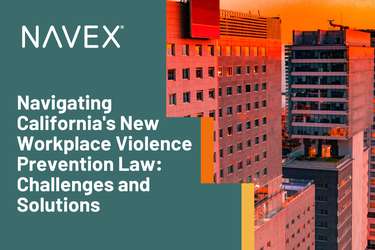Ethics and compliance officers have two new surveys on trust in corporations worth your attention. Taken together, they don’t offer too much good news at the moment, but they do suggest some steps to ensure your organization can nurture the most important asset of the 21st century: trustworthiness.
The bad news is that in the United States, trust in institutions among the general public tumbled from 47 to 33 percent.
First is the Edelman Trust Barometer, a huge survey (33,000 respondents) that measures public trust in business and government, among other institutions. The bad news is that in the United States, trust in institutions among the general public tumbled from 47 to 33 percent. Among the “informed public” (defined as highly educated, upper income, and avid consumers of media), trust plummeted 23 points, putting the United States dead last among the 28 countries included in the survey.
The numbers aren’t good for businesses, either. The U.S. public’s trust in Corporate America dropped from 55 percent last year to 50 percent this year — so we teeter at the “distrusted” brink. (For context, in Canada trust in business stands at 66 percent.) One headline in the Edelman report is “America in crisis.” The headline isn’t wrong.
Edelman flags the United States as one of six “countries with extreme trust losses.” In such places, it says, businesses have several priorities:
- Guard information quality
- Protect consumers
- Safeguard privacy
- Drive economic prosperity
- Innovate
25 Simple Yet Overlooked Ways to Boost Your Ethics and Compliance Program eBook
Clearly some of those priorities translate into challenges for corporate ethics and compliance programs. Privacy and security of personally identifiable information (PII) is now one of the most pressing compliance and reputation risks a company has, and boards are leaning on companies hard to assure that PII is protected.
More broadly, however, those first three bullet points blend into a bigger priority: protect the company’s ability to be trustworthy. That’s true whether the audience are consumers, regulators, the public, or third parties.
Trustworthiness and Compliance Programs
Let’s take the example of whistleblower complaints and internal investigations. Employees are eager to bring their concerns to management, but many fear that they will somehow suffer because of it: either their report will be ignored, or they will be punished for raising it.
That fear is rooted in a lack of trust. The obligation to demonstrate that the company can be trusted — well, that falls to the company. We’ve covered the necessary steps many times: clear anti-retaliation policies; fair and effective investigations; accountability and discipline for all offenders, even key employees; communication from top executives that, yes, speaking up is encouraged.
Alas, the second survey I mentioned suggests that companies still have lots to do here. LegalZoom’s 2018 Workplace Insight Report surveyed more than 1,100 employees of small businesses in December, and had these sobering statistics:
- Only 26 percent believe their employers can take swift action to address a workplace misconduct scandal;
- 22 percent keep a secret personal file detailing abuses they’ve experienced;
- 16 percent avoid reporting issues to management for fear of retaliation.
Granted, those numbers come from small businesses, while large corporations spend more time and money trying to address these very problems. But does anyone doubt that the same risks exist in Corporate America?
To coax employees away from those cynical postures, companies need to guard information reported to them. They need to protect the people reporting. They need to take the steps cited in the Edelman report, above.
The Role of Leadership
Compliance officers can take solace in one statistic from the Edelman Trust Barometer: the public is now putting more faith in “experts,” such as technicians or professors — and, yes, CEOs.
Trust in CEOs only rose from 37 to 44 percent, so chief executives are still distrusted as a whole. Still, people are returning some faith to them, and want to return even more. Nearly 70 percent of people say building trust is the most important job for a CEO, even ahead of delivering high-quality products and services.
Ethics and compliance officers can seize on that point when talking with senior leaders about how to shape corporate culture. First, those senior executives need to talk about good conduct, to any audience that will listen. But they also need to empower the policies, procedures, and programs that put structure in place to uphold all that talk about good conduct — which, really, is what demonstrating trust is all about.
2018 Year of Compliance: Subscribe to a Year's Worth of Compliance Hot Topics







